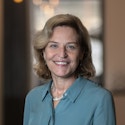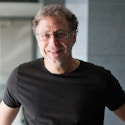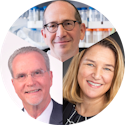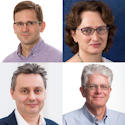On October 21, 2020, Evan Eichler discussed his research on the genetics of autism and related neurodevelopmental conditions.
His talk was part of the Simons Foundation Autism Research lecture series.
About the Lecture
Over the last decade, tremendous advances in sequencing technology have allowed scientists to study the full spectrum of human genetic variation and its relationship to disorders associated with mental health. In this lecture, Eichler presented his laboratory’s recent work studying specific forms of both inherited and sporadic mutations to identify new genes underlying autism and developmental delay. He also discussed promising paths forward for understanding more complex genetic forms of these disorders.




